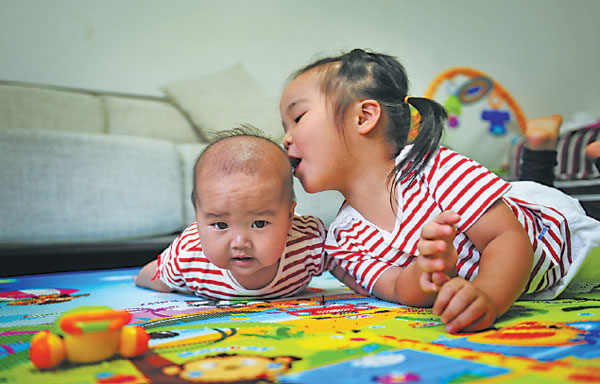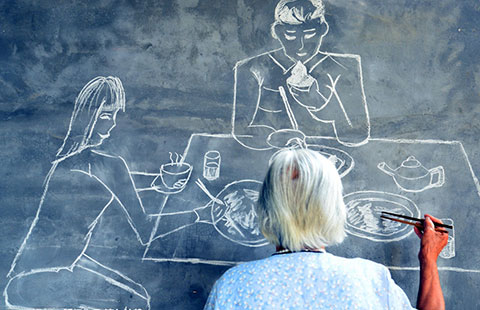Looking to a new generation for regeneration
(China Daily) Updated: 2015-11-02 08:07|
|
Editor's note: Following Thursday's announcement of changes to the family planning system, China Daily asked readers for their reflections on the end of the policy that restricted most couples to one child.
1950s
Financial burden will be a major obstacle
Wang Yongyong, retired accountant in Shanghai, born in 1959

I have advised my son and daughter to only have one child, even though I was so lucky to have twins in 1988, when most couples were only allowed one child.
Having two children doesn't just mean another set of chopsticks on the table. When you have two children, you surrender all your resources, including energy, money and time, to secure their futures, just like parents with one child.
I sent my children to private schools so they would have a better education. My daughter is an outstanding pianist and my son paints very well, which comes from years of investment.
My husband and I shouldered a double financial burden, and we tightened our belts to avoid going into debt.
The financial investment in children is even higher nowadays.
Young parents want everything for their children to be the best quality. Judging by friends who shake their heads at the idea of having a second child, the economic burden is undoubtedly the biggest obstacle.
Most of the families who already have two children are wealthy. That's perfectly understandable, because a rich family can hire a nanny or two to babysit, send the kids to best kindergartens and purchase high-end real estate near elite schools to secure places in the classrooms.
But for a couple on an average income, at least one spouse will need to abandon all thoughts of climbing the career ladder to take care of two children.
That may create a vicious circle for the family's finances because they will only have one income, but their outgoings will be large.
Wang Yongyong spoke with Zhou Wenting.
1960s
My daughter and her peers will benefit

Guo Yongli, retiree in Shandong province, born in 1964
I'm pleased to hear that the government is loosening the family planning policy. Although the good news has come too late for women like me who are too old to have a second child, at least my daughter's generation will not have to follow in our footsteps.
I gave birth to my daughter in 1987. Four or five years after that, my husband and I wanted to have another child because most people of my generation and earlier were brought up with several siblings.
Besides, there are so many obvious disadvantages to having only one child: he or she will feel lonely; it will be stressful for just one child to take care of their aged parents; and it's risky to only have one child, because if, by any chance, you lost that child, the family would lose hope.
So, my husband and I wished our daughter could have at least one sibling, but we weren't allowed to do that.
In the 1990s, couples who went against the rules and had a second child lost their jobs, so we finally gave up on the idea.
It's some consolation that my daughter will have the option to have a second child and that she won't be bothered by the problems that used to upset me.
If the financial situation allows, I hope she will have two children. That's because the cost of raising a child, especially in large cities such as Beijing, where my daughter lives, has rocketed during the past two decades.
Of course, I will lend a hand to take care of the grandchildren because it's a good way for Chinese parents to use their post-retirement lives.
Guo Yongli spoke with Zhao Xinying
- Online shoppers finding a lot to complain about
- Senior official: US urged not to damage 'big picture' of ties
- China Mars probe featured at Shanghai industry fair
- Former senior official jailed for 12 years for graft
- Xinjiang, Inner Mongolia military officers expelled from CPC, army
- China to provide free senior high education to more poor students
- Looking to a new generation for regeneration
- New rocket readies for liftoff in 2016
- Foreign experts' access to visa eased
- NPC considers law aimed at charity transparency








